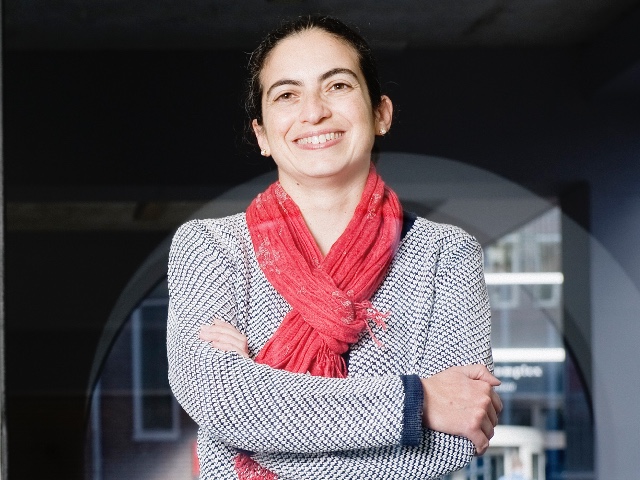Interview with Professor Jeanne Mifsud Bonnici

Jeanne Mifsud Bonnici is a Professor of European Technology Law and Human Rights at the Faculty of Law. Below is a short interview, inquiring about her expertise and role in the Governance and Law in Digitial Society LLM programme.
Could you tell us a little bit about yourself?
I come originally from Malta where I completed some of my studies in law. I have been teaching in Groningen now for a bit over 10 years. In my research, I collaborate with different researchers in other European universities and research institutes and, depending on the project, with persons working in different public institutions.
What area do you specialize in?
I am fascinated by the effect of digital technologies on society and the role law can play to help ensure fairness and justice. This fascination led me to focus on how we can (or cannot) use the framework of fundamental rights we’re used to in the non-digital context for the digital context. …this is probably a little bit vague, so allow me to explain it through one or two examples…if someone is taken to court suspected of having committed a criminal offence, our fundamental rights framework dictates that the suspect is entitled to certain rights, for example that the person can choose to remain silent and to be presumed innocent until proven guilty. Now what do these rights mean in a digital context? Is a suspect obliged to hand over their mobile phone which probably "say"’ more about the person than if the person actually spoke? Is this going against the right to remain silent? There are no clear black and white answers yet: some criminal courts say that handing over of the mobile phone does not go against this right to remain silent, others are less clear. As another example, we are, at least in Western democracies, used to having a right to express ourself freely…now how does this right work online where, for example, a person is banned from a social media platform? Is it the same right with the same mechanisms in the non-digital and digital context?
These dilemmas are what I continue to find fascinating and on which I try to focus my attention.
You participate in the course Cyber Crime in the LLM programme Governance and Law in Digital Society. What topics do you cover?
I focus on three aspects in the course Cyber Crime: a. the legal powers that the legislator has given to law enforcement to be able to investigate and prosecute cyber criminals; b. the limitations of these powers from a technology perspective – with a special attention on the ability to be "anonymos" online while committing cyber crimes and the use of encryption tools for content that can be useful to law enforcement; c. the limitations on these powers seen from a fundamental rights perspective. So, for example, say we ask internet service providers to monitor messages in the Xbox chat for signs of child grooming for sexual purposes, this may be good from the perspective of protecting children but may also be intrusive on the privacy of many millions of users who are not at all involved in criminal activities.
What do you like about this programme?
I like how engaged the students are in the subjects we discuss in class. I like this because the classes are then ones where we think together and challenge each other’s thinking. I also like that this programme has a foot in real life through the internship positions students participate in. It is a programme that gives solid theoretical foundations and the opportunity to test some of these theories in real life situations.
--------------------------------------------------------------------------------------------------
Interested in more information about our Governance and Law in Digitial Society LLM programme? You can ask questions directly to the Faculty by filling out our information request form.

